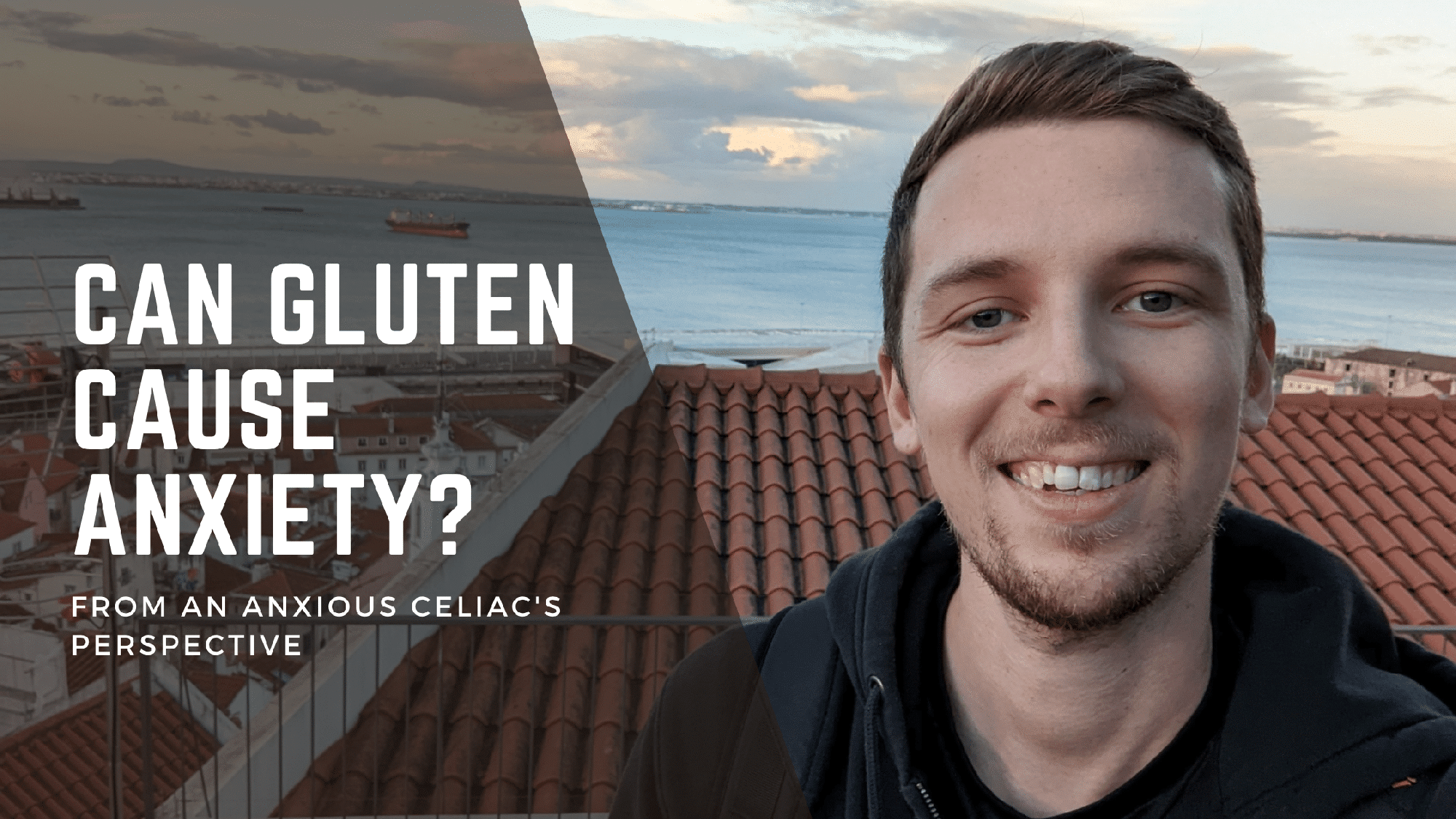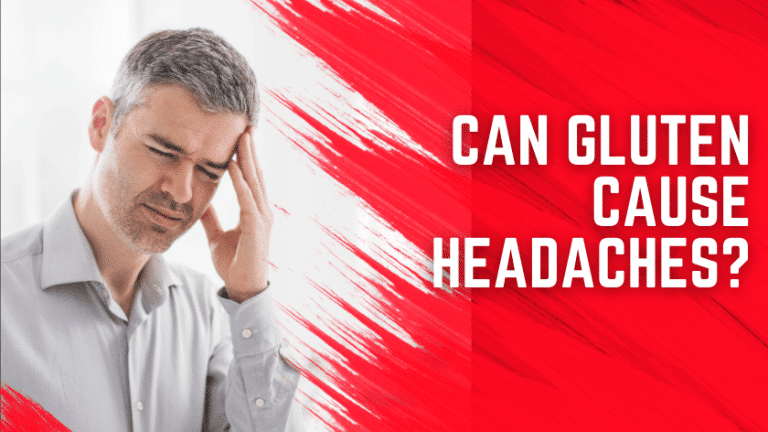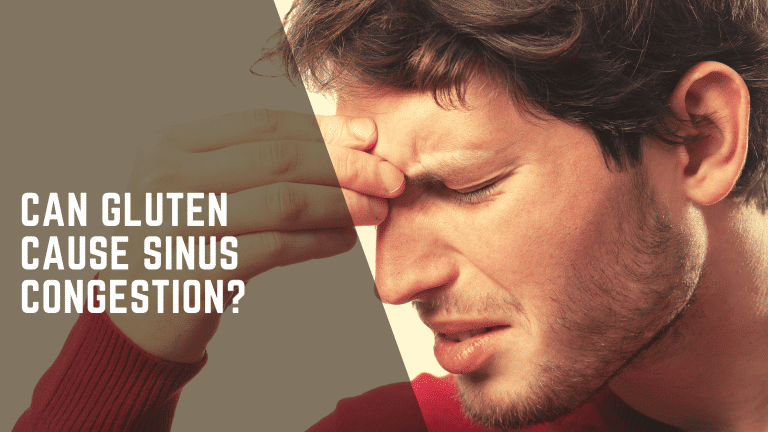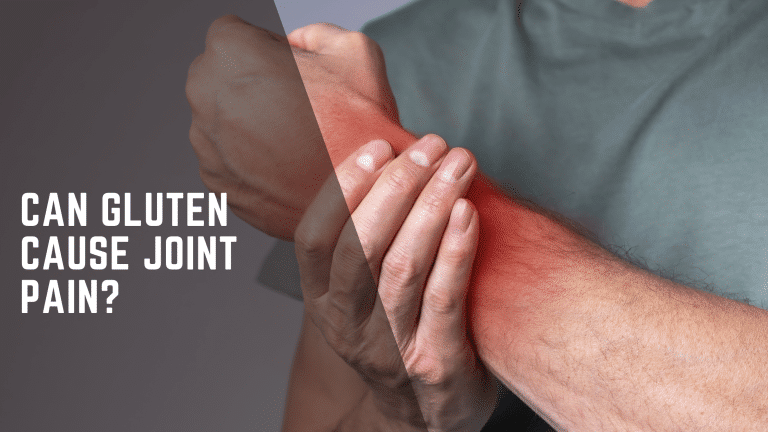Can Gluten Cause Anxiety? – An Anxious Celiac’s Perspective

Are you wondering why you feel so anxious all the time, even after those calming cups of chamomile tea? Believe it or not, something as simple and seemingly harmless as gluten could be a culprit.
Overcoming anxiety isn’t always just an exercise in self-regulation and dedicating enough “me” time – sometimes, it requires uncovering hidden links that we wouldn’t think to question.
Since being diagnosed as a celiac, I’ve been curious if there was a link between gluten and my often debilitating bouts of anxiety.
After some research, I discovered that this wasn’t as farfetched as I initially assumed – many people have found relief from their symptoms after going gluten-free (including myself to a certain extent).
While a definitive cause and effect has not yet been established between gluten consumption and anxiety, there is evidence to suggest that gluten could be a contributing factor.
So why would something like gluten be linked to anxiety? Let’s dive in.
My Journey to Finding Relief From Anxiety: Where it All Began
Before I dive deeper into the link between gluten and anxiety, it makes sense to go back a few years to when my journey with anxiety began.
The year was 2012, and visiting home for Christmas proved to be an incredibly anxious experience after starting university earlier that year. It was my first instance of feeling overwhelming fear when I had nothing to be afraid of.
The heightened anticipation during the Christmas season certainly fueled this vulnerability, as so many emotions kept swirling around my head.
When I left home in September 2012, everything that lay ahead seemed exciting and new and filled with possibilities, but now – after months of adapting to student life – I was worried at the thought of being back home, even if it was only for a few weeks.
I’ll never forget it. The intense chest pains, emotional numbness, feelings of dread, and overall vulnerability as I tried to grapple with the fact that something was wrong.
A trip to the emergency room soon revealed it was all in my head, and the diagnosis was it was an anxiety attack (with many more to follow in the years ahead).
Fast forward to 2021, shortly after my official celiac diagnosis, it turns out that my anxiety could perhaps be linked to gluten.
The idea had never occurred to me before, but after some research, I was able to discover the potential link between gluten and anxiety – specifically in regard to celiac disease.
That’s not to say that all fellow celiacs will suffer from anxiety, as everyone’s symptoms are different. However, it definitely seems as if there’s a link in my personal experience.
Let’s take a closer look at the scientific research on this topic.
Can Gluten Cause Anxiety? – What the Research Says
While it’s difficult to pinpoint a definitive cause for anxiety, there may be a link between gluten consumption and increased feelings of anxiousness.
A 2012 study revealed that various types of anxiety are common among those intolerant to gluten. After going gluten-free for one year, celiacs taking part in the research reported significantly reduced anxiety [1]. Hugely promising when it comes to keeping anxiety under control!
While further research is still needed to understand the relationship between gluten and anxiety better, the results of this study indicate that going gluten-free can be a viable option for individuals who want to reduce their anxiety levels.
But how have I got on since going completely gluten-free? Find out below…
From Suffering to Success: Learning How to Manage My Anxiety and Celiac Disease
As a celiac also dealing with anxiety, I find that my bouts of anxiety are much less frequent than they were. They’re not eliminated, but I can confidently say that my lifestyle changes have helped.
I’m now far better equipped to manage my feelings of anxiousness, and alongside following a regular self-care routine and getting enough high-quality sleep, I’m in a much better place.
I do find that my anxiety increases when I’ve accidentally consumed gluten (mostly through no fault of my own), but I’m thankfully mostly able to keep it under control now.
At the end of the day, everyone’s body is unique, so the best way to determine if gluten could contribute to your anxiety is by speaking to a qualified health professional. They can offer advice on safely eliminating gluten from your diet while monitoring its effects on your mental health.
It’s also important to remember that there may be other factors at play regarding anxiety, so even if gluten is not a contributing factor, it doesn’t mean that you won’t find relief elsewhere.
By exploring different treatment options, you can equip yourself with the tools you need to manage your anxiety effectively and enjoy life to its fullest.
Regardless of where you are on your journey, know that you’re not alone in this, and there is hope. I’m living proof that it’s possible to find relief from anxious thoughts and feelings – whether or not they were triggered by celiac disease.
Can Gluten Cause Anxiety? – Final Thoughts
If you’re feeling stuck in a cycle of anxiousness and are looking for potential relief, it’s worth exploring the possible connection between gluten and anxiety.
I, for one, am thankful that I’ve been able to identify a potential source of my anxiety and, in turn, take steps to reduce it.
If you think that gluten could be causing your anxiety symptoms, the best thing to do is discuss the possibility with your doctor. They might recommend testing for celiac disease or suggest a gluten-free diet for a few weeks to see if it makes any difference.
Things like counseling, meditation, and regular communication with your loved ones are also viable options. So don’t be afraid to give them a shot – one or any combination of the above could make all the difference.
Disclaimer: This content is based on my personal experience as an individual diagnosed with celiac disease and IBS (Irritable Bowel Syndrome) who follows a strict gluten-free diet. This does not constitute medical advice. Please consult a medical professional, nutritionist, or qualified dietitian for personalized, professional advice.




